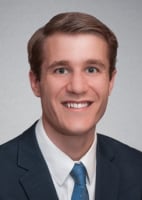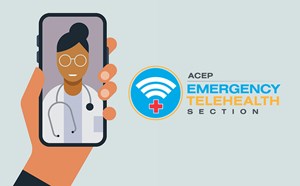
Our Geriatric Emergency Medicine Accreditation

The U.S. population is aging at an extremely rapid pace as there are about 10,000 Baby Boomers turning 65 every day. This will expand the older population so that 1 in every 5 patients will be of retirement age. Thus, being well rehearsed with caring for this population is very important.
There are three accreditation levels that ACEP awards for emergency departments; Bronze, Silver, and Gold. These were developed in support with West Health and The John A. Hartford Foundation. Each accreditation requires the emergency department to show an emphasis in geriatric specific care.
In our emergency department we have really embraced the “4 Ms” developed by the Institute for Healthcare Improvement. In many of our patients in the past we did not focus enough on these criteria. Thus, Physicians and Advanced Practice Providers have undergone didactic lectures to embrace an Age-Friendly Health System.
Mobility: We have encouraged physical therapy evaluations in the ED and set up home physical therapy sessions. We have also purchased 4-point canes, rollators, and other mobility aids.
Medications: Physicians and nurses closely review home medications/lists and discuss whether patients are on optimal medications.
Mentation: We started the process of delirium, dementia, and depression screening tools in our ED.
What Matters: Robust discussions with case managers, patients, and their families have led to better focused care and emphasis on end of life care, placement, and helping patients voice their thoughts.
Through the help of the criteria/guidelines for GEDA, we have been able to make an interdisciplinary plan of care for our geriatric population. A tremendous emphasis has been placed on transitions of care. Physicians and APPs are calling PCPs, specialists, families, and actual patients after they have been discharged. We have been able to call over 1,000 patients in nine months in our emergency department. Sometimes there are barriers for patients, and this emphasis has helped overcome some issues and has helped facilitate more communication.
The GEDA ACEP team has an all-star cast of folks who are always very receptive to questions and have plenty of resources for everyone to use. They will help guide you through the application process and provide feedback for areas of improvement. This type of coordination is instrumental to the emergency department achieving success in this endeavor.
Jenn Goebel, RN, BSN, Gero-BC is intimately involved in our ED in planning triage protocols and educating nurses on goals of care discussions in the ED. She also is a certified dementia practitioner and has helped establish a Geri-Pal cart that includes a dementia activity board and water colors. We have also purchased sound amplifiers, hearing aid batteries, and glasses to help provide necessities for these important patients. Thus, having a nursing leader in this role, is crucial in order to continue to bring value to the ED.
Part of the accreditation is to show improved patient outcomes, continuous quality improvement, and improving the physical environment. In our ED we are tracking readmissions, falls, and improved results after transitions of care. Creating our own guidelines/protocols for common geriatric emergency department presentations are part of our future goals. We also plan on applying for a silver accreditation soon.
Even though geriatrics may not be the most exciting topic for some people, I tell our ED staff all the time. We better be really good at taking care of these patients, as they are going to encompass a large volume of the patients we see on a regular basis. With modern medicine, patients are living longer and at times are requiring more medical care/hospitalizations. This is an additional item to have in your toolbox. Thus, being well-educated and rehearsed in caring for geriatric patients is key to our success as clinicians.
Sundeep “Sunny” M. Shukla, MD MBA FACEP
Immediate Past-Chair
Emergency Medicine Practice Management and Health Policy Section



